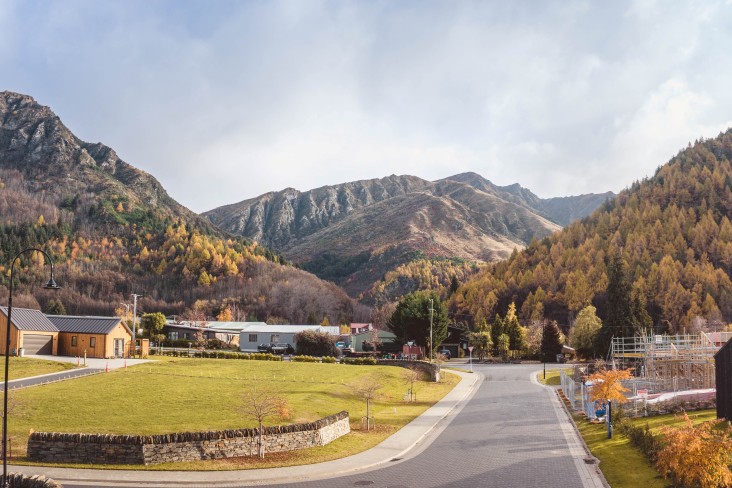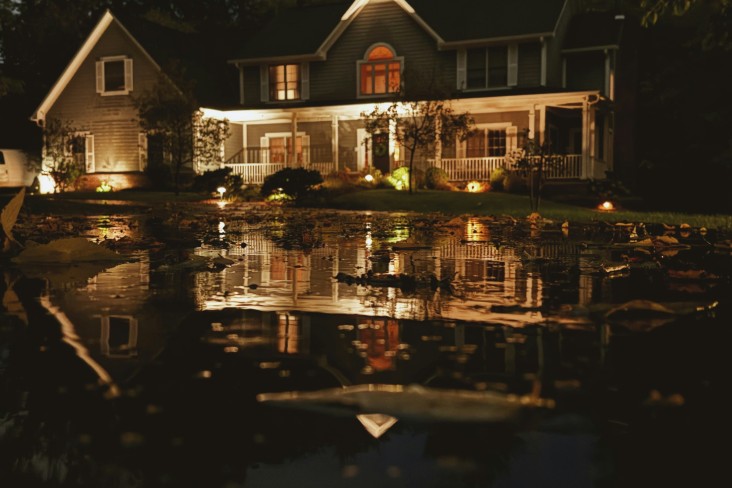With record-breaking real estate prices in and around the Upper Clutha and wider Queenstown Lakes District, it’s not surprising so many property owners have swarmed to peer-to-peer accommodation platforms, like Airbnb, to reap the rewards.
Such is its popularity, we’re increasingly seeing new house builds include a separate flat, exclusively for Airbnb letting. Many are finding it a great way to boost home loan payments.
However, anyone considering taking the plunge needs to be aware that major changes – including extra costs and compliance measures – are in the wind, and you need to be going into any Airbnb – or other peer-to-peer accommodation – venture with eyes wide, wide open. Over and above the incoming changes, there are already rules and regulations by which you must abide. Just as with any other real estate venture, it is imperative you do thorough due diligence and take legal, accounting and insurance advice, because there are plenty of (largely avoidable) traps for the unwary.
Ensure you properly insure
One of your first priorities when considering getting into the Airbnb game is making sure you fully understand the insurance requirements and have the right type of cover in place before hosting guests. Hosts can be lulled into a false sense of security by Airbnb’s Host Protection Insurance, which covers guest damage up to $US1 million. However, there are several exclusions; for example, if you allow guests to arrive earlier than the check-in date or stay later than the check-out date, the insurance cover will be invalidated.
You should also be aware that Airbnb use could affect the house and contents insurance cover you already have in place. Typically, home owners have a “residential” policy in place, which covers occupation by owners or long-term tenants. However, Airbnb is a form of short-term accommodation, so commercial cover may be required (depending on your level of Airbnb use) meaning higher premiums are payable. If you make a claim under a residential policy but your insurer considers commercial cover should have been in place, there is a risk that your claim could be denied (even if it relates to damage caused by you) due to breach of contract.
It's a good idea to also discuss liability protection (not just house and contents insurance) with your insurance provider. If a guest injures themselves or is killed during their stay, and you, as the owner, are found to have been negligent (a loose balcony balustrade, for example), a claim could be made against you under health and safety legislation, and you may be excluded from making a claim under the Host Protection Cover, depending on the circumstances.
Crunching the numbers
While, for many, Airbnb started as a little sideline, nowadays it’s big business – but regardless of how much you’re making, it’s really important you run the numbers with your lawyer and accountant to ensure you’re complying with what you need to, and have properly structured your affairs.
Do you need to register for GST? If your gross rental income exceeds $60,000 in any 12-month period, the answer will be yes. However, if the rental income is only slightly over $60,000, it may be more beneficial to scale back your Airbnb use to keep it under the cap.
You also need to be mindful of any GST implications when it comes to selling the property. Be sure to consult your lawyer and accountant for advice before signing a sale contract so they can make sure the GST component of the purchase price has been recorded correctly. Otherwise you could end up with a hefty GST bill to pay, without having first recovered this in the sale price.
You are also required to pay income tax on any rental generated from the property. You can, however, claim as a deduction any direct costs incurred in producing that income, including commission fees and cleaning costs, as well as a portion of rates, power and insurance premiums. However, this can become quite a complicated process so you should run your plans by your accountant to ensure you fully understand your tax obligations and that you are setting aside enough to cover payments.
Warning for landlords
As an aside, if you’re a landlord and are letting a property on a long-term basis, you should take formal steps to prevent the tenants from sub-letting the property for Airbnb purposes. Our strong advice is to include a specific clause in the rental agreement preventing the tenants from using the property for short-term accommodation purposes (including Airbnb). Of the many risks involved here, your tenants using the property for Airbnb without your knowledge or consent could land you in breach of your obligations to your insurer, the bank and the local council.
Bodies corporate
If you’re keen to let under Airbnb, is your property a unit that forms part of a body corporate? If so, you’ll need to check the body corporate rules to ensure short-term accommodation use is permitted and, if so, whether there are any rules regarding parking or noise.
Be up front with your bank
If you have bank finance in place – or plan to take out a loan to purchase a property to be used for Airbnb – the bank should know that you intend to use (or are using) the property for peer-to-peer accommodation.
Why is this so important? Lenders often treat short-term accommodation use differently to long-term use (tenants who rent the property for more than three months at a time). Also, when making the numbers stack up to get finance in the first place, the bank may not consider the future Airbnb revenue as part of your income when calculating whether you can service the loan, unless there is a proven history that the revenue can be achieved.
And, don’t forget, the fine print of your loan documents may record that you agree to comply with all legislation and the local council’s District Plan rules. If you haven’t registered as a homestay, holiday home or obtained resource consent (where required), this could leave you in breach of your obligations to the bank, and, if you do not rectify this when asked to do so, you could be required to repay the loan in full.
District Plan rules
In the Queenstown Lakes District, the Council regulates the use of short-term accommodation (also known as visitor accommodation) to make sure that public health and safety standards are achieved. In order to do this, the Council needs to know how properties in the district are being used, so it can manage the effects of that use.
Under the Council’s District Plan rules, a homeowner can rent their house on a short-term basis (three months or less) for up to 90 days per year. If the 90 days is exceeded, owners may need to register their home with the Council or obtain resource consent, in which case the rates payable in respect of that property are likely to increase by around 25 percent. To find out whether you need to register as a holiday home, homestay or obtain resource consent, click here.
For resource consent to be granted, the Council will consider the effects on neighbours, including noise, traffic and carparking. It is likely to be easier to obtain consent in town areas or zones identified for visitor accommodation use, and more difficult in purely residential areas.
If you register with the Council, or are granted resource consent but no longer use the property for short-term accommodation, you can apply for this to be removed (and have the rates reduced).
Once you are registered, you will need to:
- Maintain records of all letting
- Ensure compliance with all relevant laws and regulations
- Install and maintain smoke alarms, and make sure these are tested and cleaned regularly
- Ensure wood burners or fireplaces comply with Building Act requirements
- Allow no more than two adults (16+ years) per bedroom
- Provide at least one on-site carpark for use by guests at all times (unless the District Plan requires more)
Benefits of compliance
By complying with the Council’s requirements, it will help ensure you are not in breach of your obligations to your bank and insurer, will give you access to free advice from the Council regarding the management of your Airbnb use, and will also provide access to free advertising on Destination Queenstown’s accommodation website and Lake Wanaka Tourism’s website.
Upcoming changes
Changes to the Council’s rules are on their way, and it is likely the changes will increase the costs of using a property for short-term accommodation. The growth in tourism (resulting in higher demand for accommodation), coupled with the pressures on permanent rental supply, has meant there is a need for the Council to balance the management of both temporary and permanent accommodation.
The number of days a property can be used without the need for registration or resource consent will also be reduced to 28 days per year, for a maximum number of three lets during a 12-month period. If this is exceeded, resource consent will be required.
To obtain resource consent under the new rules, an applicant will need to satisfy the Council that short-term accommodation use will not be contrary to the Council’s objective to maintain long-term accommodation. This may be difficult to do. The Council will also consider a wider range of factors (for example, health and safety requirements) before granting consent. It is therefore likely that consent for visitor accommodation use in residential areas will be harder to obtain (if at all).
The new rules are due to be publicly notified in early 2019, after which public submissions will be received, before a final decision is made.
If you do already have consent, you will not be affected by the new rules, provided that the consent has been activated (i.e. short-term accommodation use has commenced), and you continue the use in the same intensity. To avoid uncertainty, you can obtain a certificate from the Council confirming you can lawfully continue operating after the new rules come into place.
Another thing to keep in mind is that Mayor Jim Boult has proposed introducing a bed tax, which would result in an additional payment per person per night. Although this concept is already used widely throughout the world, it has been met with some discontent, as business owners and homeowners are concerned their livelihoods will be negatively affected. Others say that, without the tax, the economy will decline and the international reputation of the area will be negatively impacted. But with it being estimated that there are 34 tourists for every one resident in the district, the alternative is local residents footing the bill to cover the impact visitors will have on our environment. (Auckland reportedly has a 1:1 ratio by comparison!) If a bed tax is introduced, this will need to be included in the cost calculations for Airbnb use.
AT-A-GLANCE CHECKLIST
Have you:
- Checked with your insurer that you have the right insurance policy in place?
- Spoken to your accountant about your intended use?
- Considered income tax or GST payments, and other fees incurred by Airbnb?
- Checked the body corporate rules if the property is a unit?
- Advised your bank that you will be using the property for Airbnb purposes?
- Found out from the Council whether you need to register as a holiday home, homestay or obtain resource consent?
- Applied for resource consent, if required?
- Considered the additional costs involved, including increased insurance premiums, higher rates, resource consent application fees, the cost of cleaning products and any other furniture or bedding required?
- Kept up with the play on how any changes to the Council’s rules will affect your ability to use Airbnb, or the associated costs in the future?
As so many have found, Airbnb can be incredibly lucrative, but, if you’re considering entering the market, remember, to avoid major problems, you must take timely advice, fully understand the rules and regulations and what you must do to comply with them. And, don’t forget, change is in the wind, so remain mindful you may be building a business on shifting sands.




